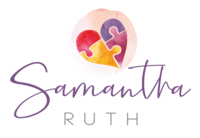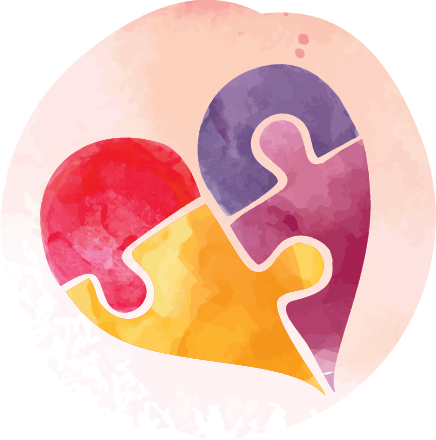Press











ABOUT Sam
SERVICES
Team Ruthless
EVENTS
GRIEFHAB™
PODCAST
RETREATS
shop
HEALING TOGETHER THROUGH THE HOLIDAYS - MAIN EVENT
HEALING TOGETHER - FOR A CAUSE: VIRTUALLY
HEALING TOGETHER - FOR A CAUSE: PILATES IN THE PARK - MICHIGAN
HEALING TOGETHER - FOR A CAUSE: VISIBLE - COLORADO
September 6-7
Jimtember Virtual Jubilee
blog
December 2nd - 8th / Metro Detroit AND VIRTUALLY
August 27th & 28th
August 30-31st
rUTHLESS IN THE ROCKIES
TEAM RUTHLESS
THE CONFIDENCE CONFERENCE
mOBILE rECOVERY dAY
Next event: September 10-23rd, Colorado
October 5-6th -
Virtual Event
September 30th, Castle Rock, Colorado
7 Groups Every week Plus Every Holiday
HEALING TOGETHER - FOR A CAUSE: Ride & ROAR - DALLAS
October 11 -12th
Stay Tuned!
FACES OF GRIEF
JOIN US
Addiction: The Evil That Haunts American Society
July 25, 2020
Our society is fertile soil for addiction.
Addiction is about instant gratification, and instant gratification is the mantra our society lives by today. How many hours do children spend on the internet, giving them access to anything? They are learning things earlier–and learning how to find things earlier—thanks to the technology we have become attached to today. Many people are no longer satisfied with a phone: they need to have an Apple watch so they can pull up their messages. Even TVs have apps.
This need for immediate information is an addictive trait itself.
Think I am exaggerating? Try putting down your phone for a few hours. See how people react. When I do this, which is daily, I am often met with scorn: “Why didn’t you respond?” “What took you so long?”
Covid certainly has not helped with people sequestered at home, surrounded by commercial advertising and technology, with no real structure or plan as to how they are going to forage through whatever issues they were dealing with prior to the virus.
Perhaps most worrying is that counselors like me are seeing addictions at younger ages than ever before. Cutting, for ex, is something we would see in high school; now we are seeing it in middle school. Plus, there are new addictions that did not exist years ago, such as vaping. And, of course, there are the usual suspects: from drinking to heroin and everything in-between.
As someone who has treated teens for the past 20 years, I have learned the best treatment for young people is to focus on their behavior and on providing them with options for better ways to cope. (Focusing solely on whatever their individual addiction is not as effective because someone addicted to one thing is more than likely to be addicted to other things also.) Finding better ways to cope returns control back into the hands of the individual, which is essential for recovery since they are dealing with an issue that they have no control over. Many in-patient facilities for alcohol addiction or eating disorders will dictate to clients what they can and cannot do.
I don’t agree with that approach. If I am dealing with someone who is battling an eating disorder, I am not going to dictate his or her menu. Instead, I operate according to the maxim, “Do you want to give a child a fish or do you want to teach that child how to fish?” I want to teach them to fish. I want to teach people the tools so that when I am not right there next to them, they will know how to survive and get through their ordeal.
Because of the prevalence of addiction in our society, I am often asked by parents, teachers, and others about warning signs to be aware of. Although the following can be signs of issues other than addiction, they are, nevertheless, common to addicts:
- Changes in appetite
- Changes in sleep
- Changes in mood
- Unexplained loss of money
And do not ignore the genetic component, which is huge. Genetics have been proven to play just as large a role as the environment. If you have one parent who is an addict, even if that parent is the only addict in your family tree, you are already 50% more likely to develop an addiction before you are even born.
One of the exercises I do with teens is to have them create a family tree. When they examine their family trees and do the math, they realize the risks they are facing before they have even been born. It is a profound exercise.
Remember, loved ones will see the problems before the addict does, so it is important as a counselor to speak with a loved one. People rarely recognize the problem in themselves at first. It usually takes consequences before they do, such as missing work and having to confront their boss or lying to their spouse and having to face them.
Addicts are stigmatized even today, despite the overwhelming number of families affected by it. Many addicts are ashamed and do not want to talk honestly about it, making it crucial that a safe place exists where these people can come forward without being criticized or judged. That safety is critical to the battling an addiction.
In 2000 I was invited to a school in the Livonia School District in Wayne County, MI to spend an afternoon discussing addiction with the students. School administrators wanted to see if there was a need for my services. They were stunned by the response. I ended up creating multiple groups for the teens, discussing all different types of addictions and how they affect everyone involved, not only the person who is using.
Addiction today is as bad–some would argue even worse—than it ever has been. It must be treated more seriously if our society is to have any future.
If you or someone that you love is dealing with addiction, I suggest that you pick up a fishing pole, cast the line and show them some positive ways that you cope, deal with stress, anger etc… Then slowly hand it over to them. Meaning, interact in ways that will bring them along- maybe you go to the movies or you watch a comedy, invite them in and show them how they too can choose to fish on their own and make healthier choices. The fishing rod is always there, right next to them, but they need to know how to use it.


Photo by Joshua Fuller on Unsplash
Leave a Reply Cancel reply
120 E. Front St. Loft 2 Traverse City MI 49684 &
77 Monroe Center St Ste 600 Grand Rapids MI 49503
phone : +1 (231)707-0707


Donate TO GRIEFHAB™
Donate today to help make our events and services free for everyone.
You can also donate directly to support a specific client in need.
four
three
info & Investment
two
THE FOUNDER
one
fIVE
GRAB A COPY OF MY
BOOKS & MERCHANDISE
four
three
info & Investment
two
THE FOUNDER
one


fIVE
GRAB A COPY OF MY
BOOKS & MERCHANDISE










HEALING TOGETHER EVENT
EVENTS
four
three
info & Investment
two
THE FOUNDER
one
fIVE
GRAB A COPY OF MY
BOOKS & MERCHANDISE
four
three
info & Investment
two
THE FOUNDER
one





fIVE
GRAB A COPY OF MY
BOOKS & MERCHANDISE










FACEBOOK FAMILY
GRIEFHAB™ SERVICES
FACES OF GRIEF
Our Press Features
THE BE RUTHLESS SHOW
two
three
Recent Articles
one





Coming in September! Stay Tuned.
December 2nd -8th / Metro Detroit AND VIRTUALLY
August 25th
August 30-31st
October 11 -12th
Stay Tuned!










four
three
info & Investment
two
THE FOUNDER
one





fIVE
GRAB A COPY OF MY
BOOKS & MERCHANDISE
four
three
info & Investment
two
THE FOUNDER
one





fIVE
GRAB A COPY OF MY
BOOKS & MERCHANDISE









